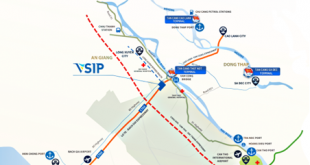The new United Nations Convention on Contracts for the International Carriage of Goods Wholly or Partly by Sea, the Rotterdam Rules, describes the rights and obligations of all parties with an interest in the carriage of goods by sea. The Rotterdam Rules bring more clarity regarding who is responsible and liable for what, when, where and to what extent. The application of the new convention will make international trade easier and lead to a reduction in costs.
Why are the Rotterdam Rules interesting for shippers, shipping lines, freight forwarders, insurance firms and maritime lawyers?
It is an updated version of earlier conventions. These conventions were so outdated that judges were reinventing the law individually. Regional solutions are inefficient, however, because 90 per cent of maritime shipping is international. With the new treaty, uniformity is restored. This makes trade clearer and more efficient. New developments, such as container transport and electronic data interchange did not feature in the old conventions. Account was also taken of the wish to include combined transport by sea and land in one treaty.
In the event of a stranded ship, a stolen container or damaged cargo, it is now stated more clearly who is responsible and liable for what. In contrast to the earlier conventions, other parties in the chain, such as stevedores, now bear partial liability too. For carriers, liability for damage to the cargo has been increased. There are also clear obligations for the shippers. They must ensure, for example, that the goods are ready for transport in good time. Containers and trailers must be loaded in such a way that they can reasonably withstand the sea voyage. If damage occurs, the legal process has been simplified. The limitation period for this has been extended from one to two years for countries which are parties to the Hague and Hague-Visby Rules, which have the greatest number of Contracting States. Furthermore, the name and address of the carrier must be stated on the transport document.
The Rotterdam Rules will be applicable to contracts for the carriage of goods by sea and also relate to connecting transport by land. As a result, multimodal transport can be covered by one contract and one legal regime applies.
The Rotterdam Rules set out the legal infrastructure for the development of e-commerce in maritime transport. This not only involves electronic transport documents, but also completely paper-free transport. The processing of cargo flows via IT will be made easier, at the expense of actual paperwork. The shorter processing times and reduced chance of mistakes will lower costs.
The Rotterdam Rules will create more possibilities for the shipping lines and terminals to store cargo further from the ship whilst awaiting acceptance from the consignee. This will prevent congestion in the port.
Why are the Rotterdam Rules interesting for the average person?
The convention describes the rights and obligations of all parties with an interest in the carriage of goods by sea. In the convention, the rules are coordinated internationally. As a result, international trade and transport can take place more effectively and more efficiently.
Countries with an open economy that are dependent on foreign trade, which includes many countries in the world, including developing and landlocked countries, benefit from the increased efficiency of international trade and transport.
In 2007 it is estimated that the industry transported over 8.0 billion tons of cargo,equivalent to a total volume of world trade by sea ofover32 thousand billion ton-miles. This is 80 per cent of the total world trade volume. Without shipping the import and export of goods on the scale necessary for the modern world would not be possible (Source: United Nations Conference on Trade and Development (UNCTAD).
Total trade volume by sea is made up of the following kinds of goods (2007):
Oil: 2.7 billion tons (33 per cent)Dry bulks (iron ore, grain, coal, bauxite/alumina and phosphate): 2 billion tons (25 per cent)
Other dry cargos (including consumer goods): 3.3 billion tons (42 per cent)
(Source: UNCTAD)
The UN General Assembly recommended that the UN Convention be known as the Rotterdam Rules in recognition that the Netherlands is hosting the official signing of the Convention.
Click Here: United Nations Convention on Contracts for the International Carriage of Goods Wholly or Partly by Sea (The Rotterdam Rules) signed on Sept. 23, 2009
Source: unvienna
 Vietnam Seaports Association
Vietnam Seaports Association



